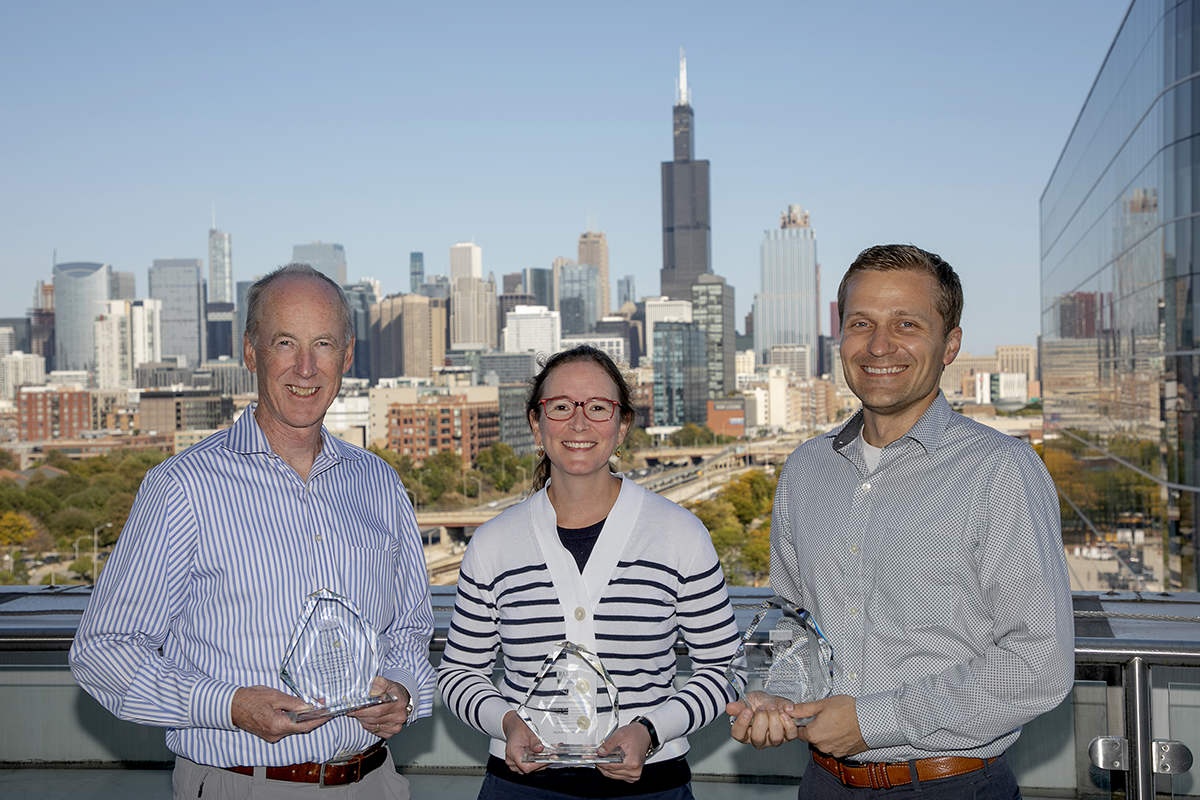The NIH T32 Training Grant in Joint Health supports post-doctoral fellowships and short-term medical student research. The grant is directed by Rick Sumner, PhD and co-directed by Markus Wimmer, PhD and Rachel E. Miller, PhD.
- Download Information Flier
- NIH P30: Chicago Center on Musculoskeletal Pain (C-COMP)
- T32/P30 Joint Seminar Series
Overview
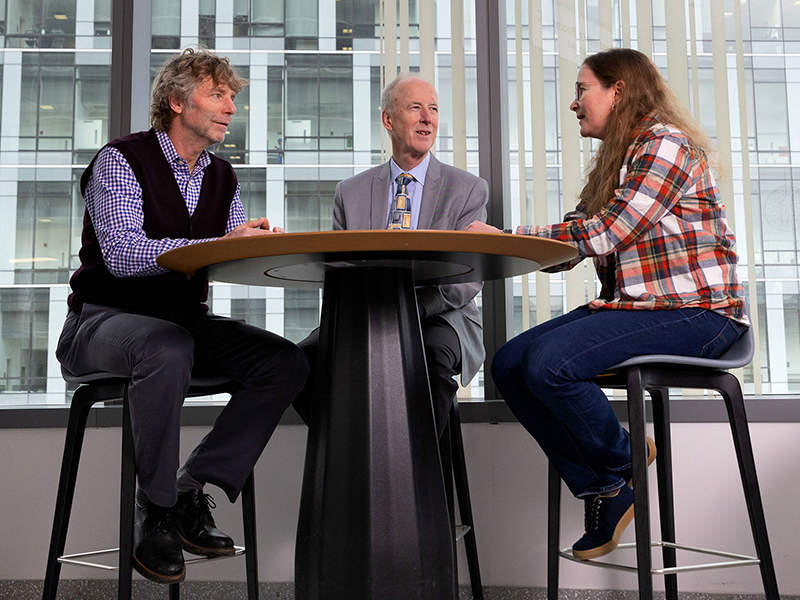
This multi-disciplinary post-doctoral training program in musculoskeletal biology emphasizes research training in joint health, encompassing five major programmatic areas: osteoarthritis and cartilage, total joint replacement, bone disease and regeneration, spine degeneration and small molecule therapeutics. The program supports pre-doctoral PhD students, post-doctoral fellows and provides 3-month research experiences for medical students. For the post-doctoral positions, we encourage candidates with medical, dental or veterinary doctorates to apply in addition to those with PhD’s.
Training takes place in the laboratories of NIH funded faculty in three basic science departments (Anatomy & Cell Biology, Microbial Pathogens & Immunology, and Physiology & Biophysics) and four clinical departments (Internal Medicine, Orthopedic Surgery, Pediatrics and the Rush Alzheimer’s Disease Center). The faculty are internationally respected scientists and physician-scientists devoted to musculoskeletal research, with a special focus on osteoarthritis (including pain), cartilage and bone biology, total joint replacement, spine degeneration and muscle physiology. Trainees have many resources available including the T32/P30 Joint Seminar Series, which features internationally renowned scholars.
After completing our program, post-doctoral trainees are better positioned to becoming independent, team-oriented, principal investigators and doctoral graduates are well-suited for their next step, be it a post-doctoral fellowship or position in industry. Short-term medical student trainees are better positioned for seeking residencies.
-
Information for prospective trainees
Eligibility
- U.S. citizen or permanent residency status required
- For the post-doctoral slots: a doctoral degree (M.D., D.O., Ph.D., D.V.M., D.D.S. or equivalent)
- For predoctoral slots: PhD student in good standing in the Division of Translational Sciences (Rush Medical College)
- For the short-term training slots: a current medical student in good standing
Mentors/Research Areas
Research areas of the mentors are outlined on this page below, with links to individual labs.
Training Program
The objective of this program is to provide education, training and research opportunities to predoctoral students, postdoctoral fellows and short-term trainees who wish to have scientific careers in the multi-disciplinary area of musculoskeletal biology with the ultimate aim of developing future leaders in orthopedic- and rheumatology-related research. This T32 emphasizes cross-disciplinary training at Rush, provides participants with a strong foundation in bench research and helps students develop connections with intramural and extramural scientists through the many networking opportunities, including in-house seminars and workshops and support for attending national meetings. The program emphasizes research training in Joint Health, encompassing five major programmatic areas:
- Osteoarthritis and Cartilage (OA)
- Total Joint Replacement (TJR)
- Bone Disease and Regeneration (BDR)
- Spine Degeneration (SD)
- Small Molecule Therapeutics (SMT)
The T32 provides training for short-term trainees, pre-doctoral (PhD) students and post-doctoral fellows. The training focuses on joint health. The program relies on three primary mechanisms: excellent mentoring, state-of-the-art research and a comprehensive resource infrastructure.
Training mechanisms that are integral to all pre-doctoral, post-doctoral and short-term fellows include multiple local activities. We do not expect each trainee to participate in all of these activities but do expect the trainee and their mentor to develop a plan for participating in the most helpful ones. Regional and national training opportunities include attendance at research meetings. We list here these resources with the expectation that the specific training program will be customized for each mentee and formalized through the individual development plan. The available activities include:
Mentoring committees
Local and regional meetings
Opportunistic visitors
(Inter)national meetingsShort-term Training. We support medical students wishing to perform a 2-3 month research internship. We coordinate with the Dean’s Office so that students with a research interest relevant to our training program can be first considered for NIH support through this T32 before being considered for a Dean’s Summer Fellowship. The NIH-supported short-term trainees participate in the activities of the Rush Medical College Summer Research Fellowship program.
Pre-doctoral Training. The Division of Translational Sciences within Rush Medical College provides multidisciplinary graduate training program in the biomedical sciences called the Integrated Biomedical Science (IBS) program. The T32 program takes advantage of the formal PhD requirements to guide preparation of predoctoral trainees. The program is accredited by the Higher Learning. The program is anchored by a curriculum that develops scientific potential and critical/analytical thinking. Most of the students’ time is spent in the lab with the goal of maximizing competencies in experimental design, analytical techniques, data collection, analysis, interpretation, and presentation. Students pursuing their PhD degree work with outstanding faculty on basic, translational, and clinical research questions that drive innovation in various fields. The IBS PhD Program has more than 100 faculty, 50 students, and admits 10-15 students each year.
Post-doctoral Training. Each trainee has a formal mentoring committee, consisting of the primary advisor and two other faculty members with relevant research interests. The postdoctoral trainee meets weekly or bi-weekly in one-on-one sessions with the primary advisor. Periodic meetings with mentoring committee members to discuss research progress and career development occur approximately once a quarter. The mentoring committee works with the trainee, using training guidelines published by the National Postdoctoral Association and Science, in which postdoctoral fellows are advised to (i) have a strategic plan, (ii) have a Plan B where they can use their scientific skills, (iii) be aware that tenure-track positions are rare, (iv) choose the postdoctoral position out of interest, (v) have multiple mentors, (vi) communicate with the mentors, (vii) apply for independent funding, and (viii) be sure to publish and present at conferences. To organize the training, we focus on the 6 competencies for postdoctoral trainees outlined and defined by the National Postdoctoral Association. These are: (i) discipline-specific conceptual knowledge; (ii) research skill development; (iii) communication skills; (iv) professionalism; (v) leadership and management skills; (vi) responsible conduct of research. Upon admittance into the training program, the importance of these 6 competencies will be shared with the fellow and preceptor. We expect the mentors to address all 6 competencies. In addition, an important source of competency development is facilitated by the Rush Postdoctoral society. The Rush Postdoctoral Society is an affiliate of the National Postdoctoral Association and collaborates with local institutions such as the University of Chicago, Northwestern University, the University of Illinois at Chicago and Argonne National Laboratory to help create a sense of community for Chicago-area postdoctoral fellows. At Rush, resources are provided to assist new postdoctoral scholars transitioning to Rush and support those leaving Rush as they embark on new careers. The idea is to provide a community where postdoctoral scholars can share ideas and concerns and socialize with peers. T32 postdoctoral trainees have ready access to the resources of the Rush Mentoring Program.
Compensation and Benefits
We adhere to NIH guidelines, and in the case of the predoctoral and postdoctoral fellows, the stipends are supplemented by Rush. Health insurance is provided for predoctoral and postdoctoral fellows as is support for attendance at one national meeting per year. Child care benefits are also available for predoctoral and postdoctoral trainees through the T32.
Payback Obligation
The NRSA legislation requires postdoctoral recipients of support to “pay back” the U.S. Government by engaging in health-related biomedical or behavioral research. This includes direct administration or review of health-related research, health-related teaching, or any combination of these activities. Please see https://grants.nih.gov/grants/policy/nihgps/HTML5/section_11/11.4_payback_requirements.htm for details. For individuals receiving postdoctoral support under individual fellowships or institutional research training grants, a payback obligation is incurred for the first 12 months of Kirschstein-NRSA support. However, the 13th and subsequent months of postdoctoral NRSA supported research training serves to pay back this obligation month by month. A Payback Agreement (PHS 6031) is required but only for the initial 12-month postdoctoral support period.
Application Process
Please contact Dr. Rick Sumner for current availability of positions supported by the training grant. We strongly encourage those interested in this program to directly contact the mentor of most interest, with a cc to Dr. Sumner (rick_sumner@rush.edu).
- For the pre-doctoral positions, the primary required element is a nomination from your academic advisor. This typically occurs once a lab is formally chosen by the student and, therefore, typically occurs no earlier than the end of the first year as a PhD student.
- For the post-doctoral positions, required elements include a cover letter indicating your area of interest/desired mentor, NIH Biosketch, your best published work (manuscript or meeting abstract) and three letters of recommendation. Please arrange a phone or in-person interview with your prospective mentor. The prospective mentor is responsible for submitting the application.
- For the short-term positions, please submit all required elements for the Dean’s Fellowship as you normally would, indicating on the face page that you wish to be considered for the T32 fellowship. Please send an email to Dr. Sumner, alerting him of your submission. If not selected for support by the training grant, your application will be considered for a Dean’s Fellowship.
-
Information for prospective mentors (PI's)
Criteria for being a preceptor
We have classified the training grant faculty into “preceptor” and “co-preceptor” categories. Criteria for being selected as a preceptor and continuing to be listed as a preceptor include (i) willingness to commit to training a post-doctoral fellow; (ii) adequate research funding to support the research effort; (iii) availability of a project relevant to joint health that will serve as a good training vehicle; and (iv) current or recent mentoring experience with TGE trainees. Several Rush faculty who meet the first three preceptor qualifications but lack previous or recent mentoring experience with TGE post-doctoral fellows are classified as co-preceptors. These faculty can serve as the primary advisor to a post-doctoral fellow as long as there is a formal co-sponsor from the preceptor faculty. Current Rush faculty wishing to transition to preceptor status or new faculty recruited to Rush wishing to be a training grant preceptor should submit their NIH Biosketch, history of mentoring and outline of research area to the Executive Committee, who will make a decision after consulting with the Advisory Board. We anticipate adding new preceptors to the training grant through recruitment of new faculty to Rush and through junior faculty establishing research independence and senior faculty re-establishing their funding base.
Obligations/Responsibilities
The mentor must commit to focusing on the 6 competencies for post-doctoral trainees outlined and defined by the National Post-doctoral Association. These are: (i) discipline-specific conceptual knowledge; (ii) research skill development; (iii) communication skills; (iv) professionalism; (v) leadership and management skills; (vi) responsible conduct of research. There are many resources available at Rush and through the T32 training program to help mentors meet these obligations. The mentor must also recognize that the mentor-mentee relationship is a two-way street and both parties need to be proactive in recognizing and fulfilling their responsibilities. An important means to ensure communication between the trainee and mentor is the use of an individual development plan using myIDP. These plans are updated yearly by the trainee and mentor and reviewed by the mentoring committee. The mentor will work with a formal mentoring committee, consisting of the primary advisor and two other faculty members who themselves may or may not be training grant faculty. It is expected that the post-doctoral trainee will meet weekly or bi-weekly in one-on-one sessions with the primary advisor. Periodic meetings with mentoring committee members to discuss research progress and career development occur approximately once a quarter. A formal mentoring committee meeting is scheduled every 6 to 12 months with either the Training Grant Director (Dr. Sumner) or one of the co-directors (Dr. Malfait or Dr. Wimmer). These more formal reviews provide feedback to the trainee and mentor on progress with respect to the research project and the trainee’s development plan.
An important outcome for the training grant is the publication record and subsequent funding success of our mentees. Thus, we expect the mentors to be fully committed to ensuring timely submission of manuscripts and grant applications. An important milestone for T32 appointees will be the submission of an individual training grant application to the NIH (F32) or another appropriate agency (such as the Arthritis Foundation or the Orthopaedic Research and Education Foundation) by the end of Year 1. The mentor must be willing to aid the trainee in writing individual grants will be a major point of emphasis and will serve as an excellent training vehicle.
-
Current pre-doctoral trainees
Name Personal statement Luisa Cedin
Image
As a pre-doctoral trainee working under Dr. Markus Wimmer (Department of Orthopedic Surgery, Motion Analysis Lab), I study how musical feedback can be applied to gait retraining, either to offload structures or make walking more symmetrical. With a background in physical exercise and orthopedics, my experience has shown the transformative power of well-executed exercises, particularly in promoting independence and self-efficacy. Our goal is to enhance orthopedic patient care and extend it to a home-based approach for greater accessibility and long-term outcomes. Marcus C. Winogradzki
Image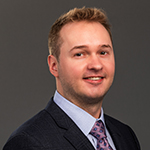
I am pre-doctoral trainee working under Dr. Jitesh Pratap in the Department of Anatomy and Cell Biology. My research project explores the molecular mechanisms underlying bone development and bone-metastatic cancers. More specifically, my work focuses on the role of microtubule isotypes in osteoblast differentiation and how they influence cancer progression in the bone microenvironment. I am honored to receive the T32 training grant, which will allow me to advance my studies and contribute to the scientific research of bone and joint health. -
Current post-doctoral trainees
Name Personal statement Timothy Boyer
Image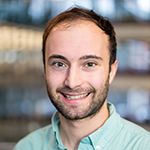
I am a postdoctoral fellow working in the laboratory of Anne-Marie Malfait and Rachel Miller (Department of Internal Medicine, Division of Rheumatology). My bioengineering background is in drug delivery to musculoskeletal tissues, and my postdoctoral research is focused on studying peripheral nerves in painful osteoarthritis and evaluating therapeutic strategies. Stacey Cahoon
Image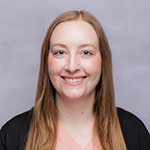
I am a postdoctoral fellow working the laboratory of Ryan Ross (Department of Anatomy and Cell Biology). My research is focused on studying the relationship between antiretrovirals used to treat HIV and joint pain. Specifically, we want to determine if certain antiretrovirals cause more joint pain than others. Daniel Hoffman
Image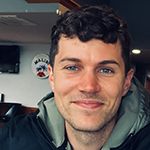
I am a postdoctoral fellow working in the laboratories of Rachel Miller and Anne Marie Malfait (Department of Internal Medicine, Division of Rheumatology). My primary research project focuses on understanding the mechanisms of pain associated with Ehlers-Danlos Syndrome. We are developing a microfluidic co-culture chip using human patient samples to investigate how fibroblast-neuronal crosstalk contributes to pain. -
Current short-term (medical student) trainees
Name Personal statement Danielle Hazime
Image
I am a rising second-year medical student at Rush Medical College conducting research under the mentorship of Dr. Jitesh Pratap and Dr. Alan T. Blank. My research explores how tubulin isotypes TUBB2a and TUBB3 contribute to chemoresistance and tumor cell adhesion within the bone microenvironment. By investigating the cellular mechanisms that affect how cancer interacts with the skeletal system, this project aims to deepen our understanding of bone biology and inform future approaches to musculoskeletal disease. Asim A. Khan
Image
I am a medical student currently working in the lab of Dr. Markus Wimmer investigating lower-limb biomechanics in patients with plantar fasciitis. Our project involves gait analysis and motion capture techniques to identify biomechanical deficits and altered movement patterns associated with this condition. By examining these structural and functional differences, we aim to improve the clinical understanding and management of plantar fasciitis. -
Previous post-doctoral trainees
Name Personal statement Mohammed J. AbuAlia 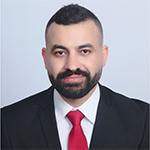
With valuable past experience in mechanics, my areas of interest include artificial implants, friction, lubrication, and the wear of natural and artificial joints. My current project supported by the T32 grant focuses on studying the rheological properties and behavior of bovine knee cartilage using a rheometer to help in understanding the mechanisms and progression of osteoarthritis, which is key for prevention and for optimal design of replacements. I do this by testing cartilage under a range of different loads and frequencies that resemble the physiological conditions in the knee joint. Mary Bucklin 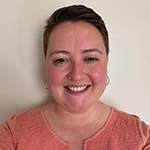
I am a postdoctoral fellow working in the laboratory of John Martin (Department of Orthopedic Surgery). I bring a unique background of gait analysis, motor learning, and biomechanics to a new area of study that I am passionate about growing in. I am determining the relationship between spine health and socioeconomic status/stress using machine learning and imaging techniques. Terese Geraghty 
I am a postdoctoral fellow working in the laboratories of Rachel E. Miller and Anne Marie Malfait (Department of Internal Medicine, Division of Rheumatology). My primary research project is developing flow cytometry for immune cell characterization in the dorsal root ganglia during osteoarthritis. We aim to elucidate how macrophages and other immune cells contribute to osteoarthritis pain. Michael Godoy
Image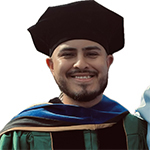
As a postdoctoral fellow working in the collaborative laboratories of Hannah Lundberg and Robin Pourzal (Department of Orthopaedic Surgery), I am excited to share our primary research project with you. This project investigates the in vivo chemical alteration processes of contemporary ultra-high molecular weight polyethylene (UHMWPE) tibial liners. We work together to map locations of damage to UHMWPE liners and perform spectroscopy to determine the chemical constituents present in retrieved UHMWPE liners. John Hamilton 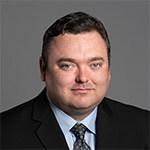
I was a postdoctoral fellow working in the laboratories of Markus Wimmer (Department of Orthopedic Surgery) and Sasha Shafikhani (Department of Internal Medicine). My primary research project involved the use of methods to prevent or reduce the severity periprosthetic joint infection. I worked on testing strategies involving immune cell stimulation and surface augmentation to the metal bone implant. Brittany Wilson 
I am a postdoctoral fellow working in the laboratory of Anna Spagnoli (Department of Orthopedic Surgery). My primary research project involves investigating molecular mechanisms of fracture repair using transgenic mouse models to conditionally delete certain factors before, at the time of, or after bone fracture. Specifically, this project aims to determine the consequences of conditional deletion of paired related homeobox gene 1 (prx-1) on osteochondrogenic differentiation and fracture healing using both in vitro and in vivo approaches. Catherine Yuh 
I am a postdoctoral fellow working in the Biocompatibility and Implant Pathology Laboratory under Dr. Robin Pourzal (Department of Orthopedic Surgery, Division of Biomaterials). My research project involves utilizing infrared spectroscopy to perform high throughput chemical mapping on musculoskeletal tissues. Our goal is to investigate the chemical features within these tissue systems in both pre-arthritic conditions and end-stage osteoarthritis, with the goal of elucidating disease progression. -
Previous short-term (medical student) trainees
Name Personal statement Amal Adra 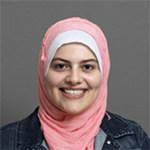
I am working on understanding the effects of the circadian rhythm of the gut microbiome on bone health, specifically, how knocking out the Bmal 1 gene in our mouse models alters vertebral trabecular bone mass density and microarchitecture. Kyle Anderson 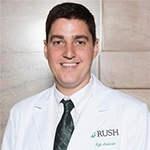
Type 2 Diabetes Mellitus (T2DM) is a world-wide epidemic that is diagnosed in anywhere from 8% to 22% of all total joint replacement patients where the disease significantly increases the risk for implant failure as well as costly revision surgery. It is known that T2DM directly alters bone structure and quality as well as reduces mechanical properties, but osseointegration, or the ability for bone to integrate and stabilize cementless implants, has not been adequately described. Drawing upon Rush’s excellent basic scientists in bone, outstanding clinicians in Orthopedics, and funding from the T32 grant I have been able to meaningfully begin my research career and lay the foundation for a future career as a physician-scientist. Thomas Cunningham 
The purpose of my study is to utilize multiplex immunofluorescence for immune cell profiling in osteolytic bone samples. Multiplex immunofluorescence provides clinically relevant information on protein expression, colocalization of expressed antigens, and the spatial orientation of immune cells. Application of this technique to osteolytic bone may reveal insights into the disease processes and direct discovery of novel therapeutic treatment opportunities. Alexander L. Hornung 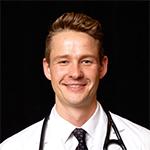
With the increase in total shoulder arthroplasty (TSA) incidence, examining the relationship between wear and corrosion of failed TSA prostheses as well as cellular reactions in the periprosthetic tissues is imperative. The goal of my project is to continue to elucidate this relationship in hopes that it will impact not only future device design, but potential treatment recommendations as well. Zeeshan Khan
Image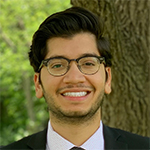
Femoroacetabular impingement syndrome (FAIS) is a common cause of hip pain and dysfunction among adolescents. Our understanding of FAIS has strongly evolved over the past two decades, with long-term outcome studies elucidating FAIS as a pre-arthritic condition. The goal of our work is to explore the biological markers and shape patterns of FAIS and how these contribute to the progression of pathology towards osteoarthritis. Zoe Maria Dominique M. Reyes 
X-linked hypophosphatemia (XLH) is the most common cause of vitamin-D-resistant rickets, affecting 1 in 20,000 people. Building upon past research on XLH, my primary research objective is to evaluate the expression of sclerostin in isolated primary osteoblasts and dental follicle progenitor cells to determine the mechanisms of skeletal and periodontal defects in patients with X-linked hypophosphatemia. I cannot express my gratitude enough for the support of the T32 grant, but especially to Dr. Ryan Ross and his lab, for greatly contributing to my training to become a physician. Kerry Sung 
Extensive research has shown that the gut microbiome maintains a critical role in influencing systemic inflammation. However, the direct relationship between gut microbiome and rheumatoid arthritis is not well documented. Our project involves performing systematic reviews of the current literature surrounding this topic, with a focus on uncovering novel communication pathways and notable proinflammatory biomarkers that dictate the pathogenesis of rheumatoid arthritis. Adegboyega E. Thompson
Image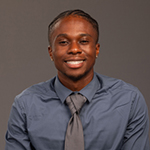
I am a current second year medical student working in the lab of Dr. Rick D. Sumner and Dr. Brittany Wilson to observe the deficits in bone structure within preterm pig models. The goal of this project is to determine the potential usefulness of the pig model in assessing the skeletal deficits associated with preterm birth, in hopes of eventually developing possible interventions after preterm birth to lessen the risks of human infants in developing metabolic bone disease of prematurity and recurrent fractures. I would like to extend my gratitude to Dr. Wilson and Dr. Sumner for their leadership and mentorship throughout the duration of this program. Samantha Weinberg
Image
I am a medical student working in the laboratory of Dr. Anne-Marie Malfait researching pain mechanisms in Classic Ehlers Danlos Syndrome (cEDS). I am studying nociceptive innervation patterns in dermal tissue from mice to explore how genetic defects in genes that encode type V collagen have implications in chronic widespread pain among cEDS patients. The goal is to advance our knowledge of mechanisms underlying pain in Classic Ehlers Danlos by utilizing skin tissue as the focal point. Daniel Wichman 
Continuing past research on the biomechanics of femoroacetabular impingement syndrome (FAIS), I am studying the ways in which acetabular cartilage damage influences movement patterns during athletic-type maneuvers. Data is collected intra-operatively to define degree of cartilage damage based on live arthroscopic imaging, and biomechanics data is collected pre-operatively in the Rush Motion Analysis Lab using complex methods to identify performance metrics, dynamic joint angles, and dynamic joint forces. Our team was able to identify the degree of cartilage damage that influences movement during squatting and therefore, we are now better prepared to understand the relationship between FAIS and movement. We hope that this will eventually allow us to use movement as a clinical biomarker for hip joint disease progression.
Mentors
| Preceptor | Research Interest |
|---|---|
| Fill, Michael, PhD (Lab) | Intracellular Ca signaling and arrhythmias |
| Jacobs, Joshua, MD (Lab) | Biocompatibility of implant materials; joint replacement |
| Lundberg, Hannah, PhD (Lab) | Computational modeling of human joint biomechanics |
| Malfait, Anne-Marie, MD, PhD (Lab) | OA and pain |
| Martin, John, PhD (Lab) | Spine degeneration, regeneration and function |
| Miller, Rachel, PhD (Lab) | Osteoarthritis, pain, biomechanics |
| Pourzal, Robin, PhD (Lab) | Implant materials |
| Pratap, Jitesh, PhD (Lab) | Osteoblast differentiation and cancer cell survival in the bone microenvironment |
| Ross, Ryan, PhD (Lab) | PhD Bone quality, hormonal role of the skeleton |
| Samartzis, Dino, PhD (Lab) | Spine degeneration and pain |
| Spagnoli, Anna, MD (Lab) | Bone repair |
| Sumner, D. Rick, PhD (Lab) | Bone regeneration, implant fixation |
| Wimmer, Markus, PhD (Lab) | Tribology, motion analysis, cartilage, joint replacement |
| Co-Preceptor | Research Interest |
|---|---|
| Al-Harthi, Lena, PhD (Lab) | HIV and HIV latency |
| Barker, Edward, PhD (Lab) | HIV innate immunity |
| Buchman, Aron, MD (Lab) | Neurobiology underlying age-related cognitive and motor decline |
| Inoue, Nozomu, MD, PhD (Lab) | Spine biomechanics |
| Keshavarzian, Ali, MD (Lab) | Gut microbiome and permeability |
| Ko, Frank, PhD (Lab) | Bone regeneration |
| Maki, Carl, PhD (Lab) | Cancer therapy resistance |
| Patel, Aloka, MD (Lab) | Nutrition and growth of preterm infants |
| Plaas, Anna, PhD (Lab) | Connective tissue pathobiology |
| Schneider, Jeffrey, PhD (Lab) | Infection response, HIV and cART |
| Yanke, Adam, MD, PhD (Lab) | Cartilage regeneration and repair |
NIH T32 Training Grant in Joint Health in the News

The title of the poster was “Musical Feedback from Pressure-Sensing Insoles for Asymmetric Gait Retraining”. The co-authors on the poster included her advisor Markus Wimmer, PhD, and Christopher Knowlton, PhD (Rush). The case study focused on demonstrating the potential use of musical feedback for gait rehabilitation post ankle fracture.
The Expert Science Meeting 2024 was held in Grassau, Germany from July 20 to 23rd. This meeting serves as a discussion forum on the current state of research in pressure and force loading in humans and animals.

Dr. Wilson in Dr. Sumner’s lab won the first place for the Postdoctoral Platform Presentation Award (sponsored by Developmental Dynamics) at the recent annual meeting of the American Association for Anatomy.
The title of her presentation was “Mineral Metabolism Markers in a Pig Model of Preterm Birth Mimic Clinical Findings”. The co-authors on the paper included Martin Rasmussen, Thomas Thymann and Per Sangild (all of the University of Copenhagen) and D. Rick Sumner (Rush).
The 2023 annual meeting of the American Association for Anatomy (Anatomy Connected 2023) had over 1,000 attendees and was held in Washington, D.C. on March 25-27. This meeting is the world’s largest gathering of anatomical science researchers and educators.

Postdoctoral trainee Catherine Yuh, PhD was awarded a grant from the AO Foundation for “Novel chemical spatial mapping of human intervertebral discs for future poly-omic and AI solutions.” Dr. Yuh is working with Dr. Robin Pourzal.

Catherine Yuh, PhD, instructor of Department of Orthopedic Surgery, is the 1st Place (Joint) winner of the Rush Mentoring Programs 8th Annual Symposium - Poster Competition.

Terese Geraghty earned her PhD in Immunology & Microbiology at Rush University Medical Center studying the efficacy and mechanisms of a small molecule agonist of integrin CD11b as a novel lung cancer immunotherapy. Soon after graduating, she was awarded a postdoctoral fellowship through Rush’s T32 Joint Health fellowship program working in Dr. Rachel Miller’s laboratory, where she investigated the contribution of immune cells, such as macrophages, in the dorsal root ganglia (DRG) to the establishment and maintenance of osteoarthritis (OA) pain. During her T32 postdoc, she applied for an individual F32 postdoctoral fellowship grant entitled, “Elucidating how macrophages contribute to osteoarthritis pain.” She was recently awarded the F32 grant and continues to investigate the role of DRG macrophages in OA pain. She is excited to answer critical questions in the fields of osteoarthritis, neuro-immunology, and pain using support from her F32 grant.
The proposed research takes advantage of her mentors, Drs. Rachel Miller and Anne-Marie Malfait, respective expertise. Throughout her PhD and post-doctoral training, she has co-authored 8 publications and presented at more than 15 national and international conferences. Terese’s combined experiences and strongest research interests are in onco-immunology and neuro-immunity, and her long-term goal is to become a senior scientist in industry, where she can be at the forefront of translating new scientific discoveries to the clinic.
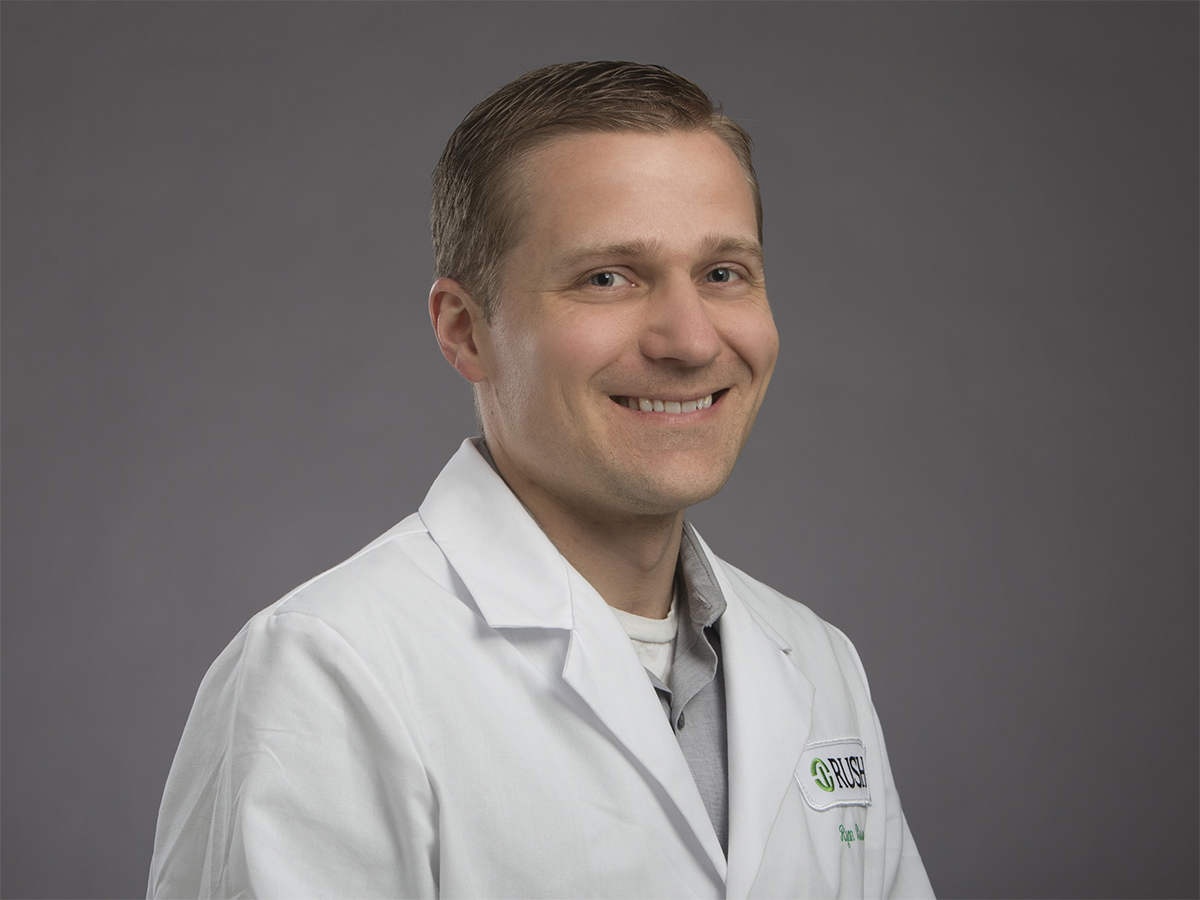
Dr. Ryan Ross has been named as 2021 Mentee of the Year Rush Mentoring Programs. Read More.
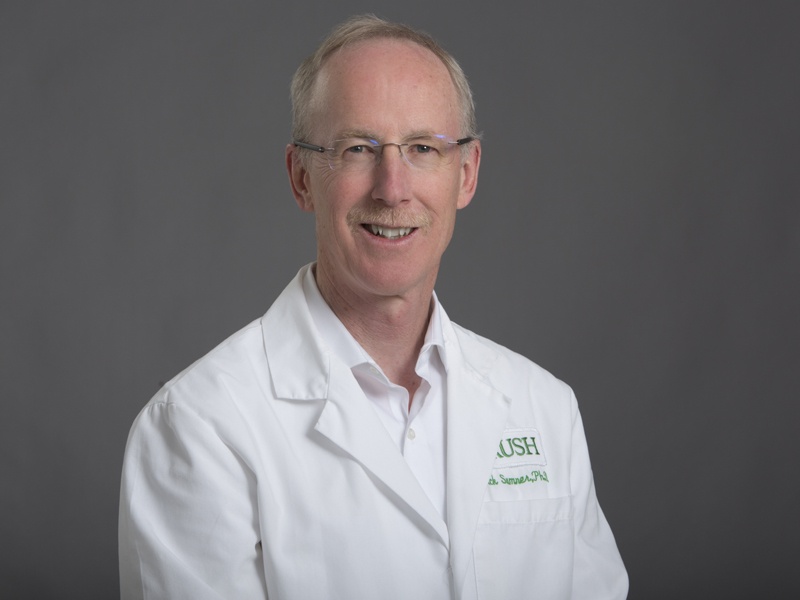
Dr. Rick Sumner has been named as 2021 Mentor of the Year Rush Mentoring Programs. Read More.
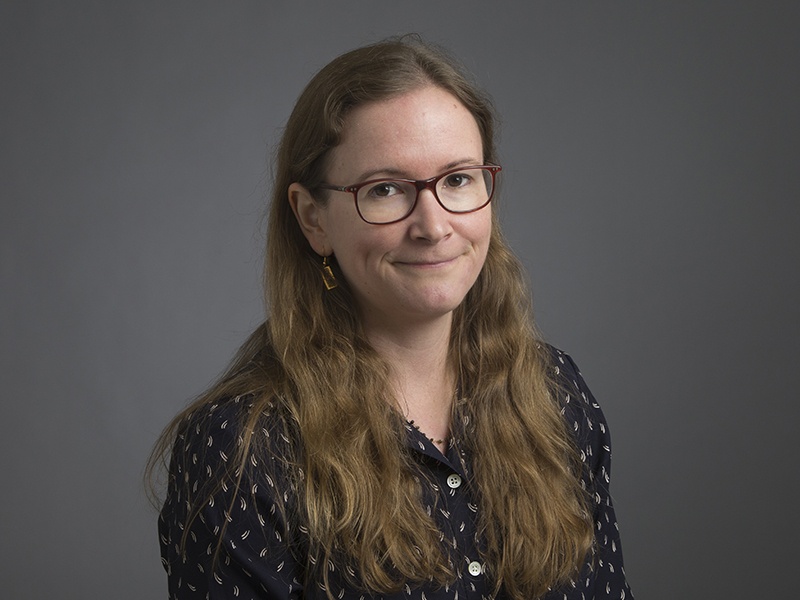
Dr. Rachel Miller has been named as 2021 Postdoctoral Mentor of the Year Rush Mentoring Programs. Read More.

